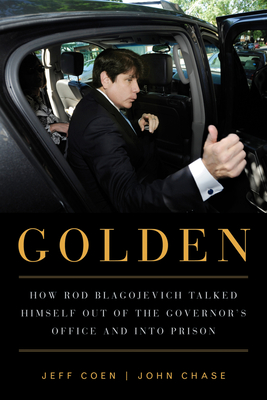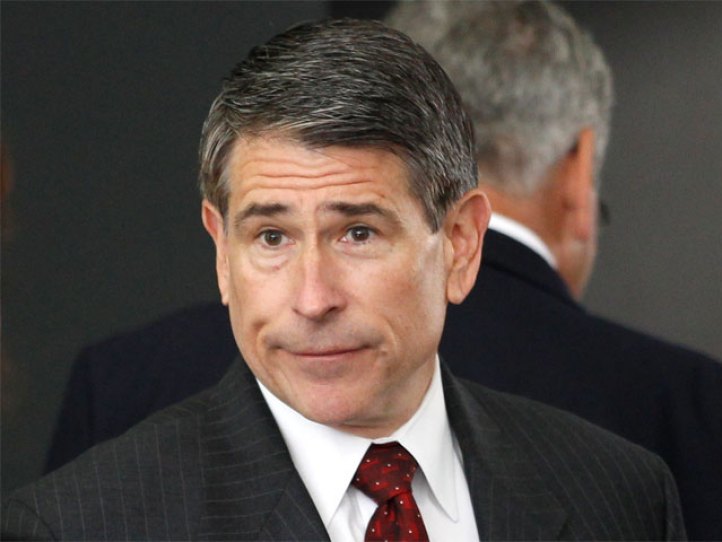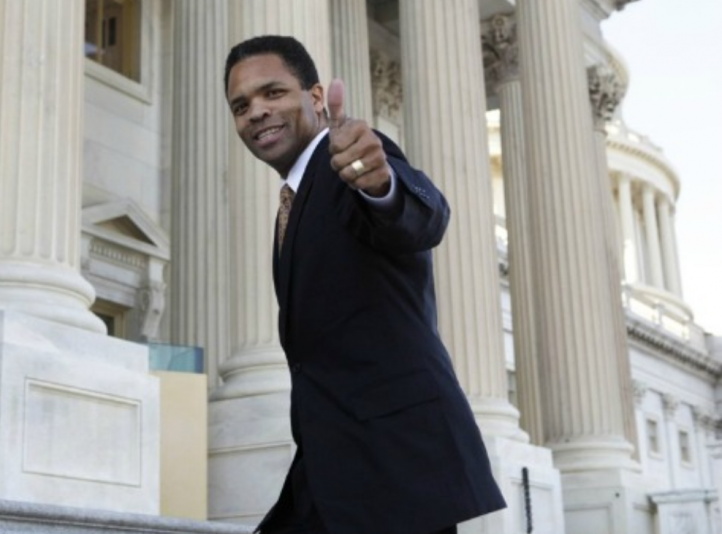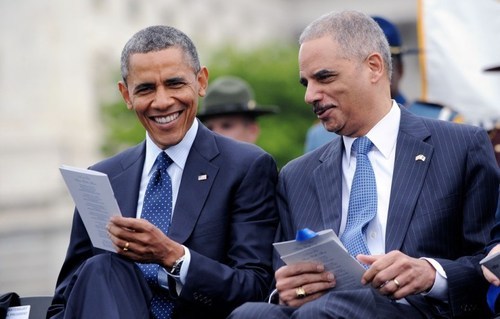Hey, Chicago Tribune: Why are you helping Rod Blagojevich blackmail the Feds?
Ernie Souchak, Editor-in-Chief

A proven reliable source reports that Rod Blagojevich is attempting to blackmail his way out of prison.
And, there are indications that the feds are in the process of capitulating to Blago’s demands, aided by the collaborative assistance of the ChicagoTribune, in what amounts to a cover-up of a crime.
(Read this email thread from bottom to top)
Top
-----Original Message-----
From: <redacted>
To: Len Goodman
Sent: 2013-05-24 17:24:37 +0000
Subject: Is it a real appeal?
Mr. Len Goodman
It has come to my attention, that there is a strong possibility your client Rod Blagojevich is blackmailing former U.S. Attorney Patrick Fitzgerald and the federal government.
Are you familiar with the interview Rod Blagojevich did with Brian Ross?
(Sender redacted here and below when not otherwise indicated)
----- Forwarded Message -----
From: <redacted>
To: "Kimberly Nerheim" <Kimberly.Nerheim@usdoj.gov>
Sent: Saturday, March 12, 2011 1:08:10 PM
Subject: Fwd: Brian Ross 8-26-2010 Blago threatens
Kimberly
Please contact me about these very important matters.
xxxxxxxxxxxxxx
----- Forwarded Message -----
From:<redacted>
To: "Randall Samborn" <Randall.Samborn@usdoj.gov>
Sent: Saturday, March 12, 2011 1:00:28 PM
Subject: Fwd: Brian Ross 8-26-2010 Blago threatens
Randall Samborn
Looks like Rod Blagojevich's decision to go the route of extortion might be working for him? . In plain site on ABC.
Do you think if he does not get the deal he wants Rod Blagojevich will tell the public the information Patrick Fitzgerald supposedly wanted the morning he arrested Blago.
More important does Patrick Fitzgerald want information about corruption at the level that Blago speaks of in this interview.
Blago say's some very telling things in this interview with Brian Ross that will help expose the truth. Simple questions, who told John Chase that the feds had a wire on Blagojevich and that John Wyma was cooperating with U.S. Attorney Patrick Fitzgerald.
Who,what,why,when and where was the decision made to warn Blago ?
Why is no one asking ? That last question was rhetorical, I know why no one is asking.
Randall, lets not forget our discussions about these matters. Maybe this is one of those times that calls for a Special Counsel to be appointed.
Trial or not, there are a lot of questions that need to be answered starting with the ones John Chase has never answered.
xxxxxxxxxxxxxxxx
Bottom
----- Forwarded Message -----
From: <redacted>
To: <redacted>
Sent: Monday, March 7, 2011 9:54:37 AM
Subject: Brian Ross 8-26-2010 Blago
Pertinent memory refresher.
http://abcnews.go.com/Blotter/video/rod-blagojevich-reveals-jail-activity-11493201
Pop quiz:
Question. Why did the feds give the Blago wiretap tapes and transcripts to the Chicago Tribune and only the Tribune?
Answer. So the Tribune could lie and tell the public that there is nothing on the tapes that Rod Blagojevich could use to blackmail the Feds.
Question. Why are the Chicago Tribune and their reporters John Chase and Jeff Coen refusing to report what is on the tapes and transcripts?
Answer. They are part of the criminal cover-up dubbed "Chicagogate"
Question. Why are the Blagojevich brothers reevaluating whether or not the public should hear the tapes or read the transcripts that they and their attorneys would not shut-up about in the past?
(Read this email thread from bottom to top)
Top
-----Original Message-----
From: Robert Blagojevich
To: <redacted>
Sent: 2013-05-09 19:10:09 +0000
Subject: Re: Inquiry (your statement)
<Name redacted>
Understand this; everything I've either written to you or said is off the record.
Please respect my position.
Rob Blagojevich
Sent from my iPhone
------------------------
On May 9, 2013, at 1:33 PM, <redacted> wrote:
Robert
If you cannot go on the record stating that it is unacceptable for the Feds to give Tribune reporters and only Trib reporters John Chase and Jeff Coen copies of sealed tapes and transcripts, tapes and transcripts that yourself and Rod were not allowed to keep.
You are making a statement.
Are you sure this is the statement you want to make?
----- Forwarded Message -----
From: <redacted>
To: Robert Blagojevich
Sent:Thu May 9 02:55:54 UTC 2013
Subject: Fwd: Inquiry
Robert
How does Rod's appeal have anything to do with whether you believe the tapes should be made available to others in the Media?
The Feds gave access to the tapes to the Chicago Tribune, and only the Trib.
And, according to John Chase and Jeff Coen, the Tribune can grant Rod and yourself your wish, and publish the transcripts.
All I am asking is: Do you still believe that all the wiretap tapes should be played?
----- Forwarded Message -----
From: Robert Blagojevich
To: <redacted>
Sent:Thu May 9 02:38:16 UTC 2013
Subject: Re: Inquiry
To clarify and be specific, I don't want to say anything publically until my brother's appeal has been heard.
At that point I will reevaluate.
Sorry about the confusion of my previous email. Rereading it, it confused me as well.
Robert
------------------------
On May 9, 2013, at 9:22 AM, <redacted> wrote:
Robert
I do not understand. You and Rod have repeatedly expressed your desire for the public to hear all the wiretap tape recordings.
Help me understand.
Do you still believe the wiretap tapes should be played for the public?
What has changed?
----- Original Message -----
From: Robert Blagojevich
To: <redacted>
Sent:Thu May 9 11:40:36 UTC 2013
Subject: Re: Inquiry
(Name redacted)
At this point what I believe Chase and Coen should do has to remain with me until Rod's appeal is completed.
I hope you can understand my position.
Robert
---------------------
On May 8, 2013, at 2:51 PM, <redacted> wrote:
Robert
Do you believe Tribune reporters John Chase and Jeff Coen should publish the wiretap transcripts they received from the Feds that were never made public?
Bottom
-----Original Message-----
From: <redacted>
To: Robert Blagojevich
Sent: 2013-05-07 15:03:50 +0000
Subject: Tapes and Transcripts
Robert
John Chase and Jeff Coen had this to say "no legal ban on us publishing" when asked about the wiretap tapes and transcripts that were never made public.
Tapes and transcripts that they received from the Feds.
Don't you think it's time for people to publicly insist that they do publish them?
Perhaps, if you ask.
Conclusion: If the Feds keep their word and release Blago from jail, the Blagojevich brothers will never reveal what’s on the wiretap tapes that the feds don’t want you to know.
Here's a question: Should you trust the Tribune Company?
Particularly now that it’s becoming clear that it works for the federal government.
Answer. I think not!
Robert Blagojevich dodged going to prison
Hugo Floriani, Investigative Reporter

Jesse Jackson Jr. was not the only one saved when John Chase called the Blagojevich camp and warned them that the feds were listening.
Remember, it was Robert Blagojevich that would have been caught on surveillance tapes, meeting with Jackson's money man, Raguveer Nayak. Chase not only saved Jesse Jackson, Jr. from prison, he also saved Robert Blagojevich.
Hold that thought. We'll come back to it later.
November 21, 2012: Within hours of Jesse Jr's resignation from Congress, Robert Blagojevich expressed his disappointment. He felt he likely would never be able to clear his own name.
Why is that? you ask.
Well, R. Blagojevich assumed there'd be no ethics committee investigation of Jesse Jackson Jr's attempt to buy the U.S. Senate seat his brother, then Governor Rod Blagojevich, was selling.
Robert was right. The DC pols didn't want to investigate that attempted transaction.
However, there's nothing to stop Robert Blagojevich from making his case to the public.
That is, if Robert truly believes his name could be cleared.
Robert Blagojevich has all the FBI wiretap tapes that brother Rod and his attorneys have.
Robert has listened to all the government's wiretaps, and, as of today, he hasn't expressed any disagreement with Chase and Coen's assertion that the contents of the tapes show his brother is guilty.
Furthermore, Robert, Rod, and their respective attorneys have remained silent, while Chicago Tribune reporters Chase and Coen assert that the Blagojevich defense was built on a house of lies.
Remember, the entire Blagojevich entourage was screaming that "the tapes would set them free," if only everyone could hear them.
In their book "Golden," Chase and Coen claim they listened to all the wiretap tapes, and that there is nothing there that suggest Rod or Robert are innocent of attempting to sell a U.S. Senate seat.
So, in a nutshell:
In the past.
The Blagojevich brothers and their attorney's repeatedly professed that proof of their innocence is captured on the government's tapes. And that, if the public were allowed to hear the tapes, the brothers would be found innocent.
Present day.
(1) John Chase and Jeff Coen claim that the Blago's and their attorney's were lying.
(2) The Blago brothers and their attorneys are not disputing Chase and Coen's claims.
Conclusion:
The Blago's and their attorney's lied about what's on the tapes.

So, what will the Brothers and their attorney's want you to believe next? (coming soon)
Questions:
(1) What was captured on roughly 400 hours of recorded Blago wiretap conversations?
(2) Why can't we hear them?
(3) Why are the Blagojevich's and the U.S. Attorney's Office hiding behind a phony protective order?
Developing story......
Why are Blagojevich’s attorney’s silent?
Ernie Souchak, Editor-in-Cheif, Illinois PayToPlay & Hugo Floriani, Investigative Reporter

Why are Blago’s attorneys silent in the face of the Tribune’s claim that there’s absolutely nothing, nada, zilch, on the Blago tapes to support their assertion of Blago’s innocence?
How come Blago’s attorneys are not standing outside the U.S. Attorney's Ofiice screaming about how access to the tapes and transcripts was given exclusively to the two Trib reporters?
The two reporters-authors of Golden claim there is nothing on the fed’s wiretaps of Blago’s phone conversations to suggest that Blago is innocent.
Recall that Sam Adam, Jr. was the lead attorney for Blago back in 2009 when Blago’s legal defense team agreed to the protective order dealing with the government’s evidence.
Throughout that episode, we were led to believe that Judge James Zagel restricted Blago and his attorneys from discussing the content of Blago’s phone calls recorded by the feds.
But now we know that wasn’t true and that there was, and still is, absolutely nothing, nada, zilch, preventing Blago and/or his brother, Robert Blagojevich, from talking about the recorded conversations.
On Dec 8, 2011, Sam Adam, Jr. went on the record saying,“I’ve said this from day one, having listened to them – not just talking, having listened to them – I honestly believe in my gut, there is no doubt that this trial would have been different. I honestly believe there is no doubt that this case would have been different, and if I’m wrong, why can’t we hear them now?”
Well, that’s a crystal clear statement. But wait…
The Trib reporters-authors, John chase and Jeff Coen, who’ve now listened to the tapes, have stated, for the record, that there is nothing on them supporting claims of Blago’s innocence.
So, how come Adam isn’t standing outside the Federal Building, wearing a sandwich board reading “Free Blago,” and screaming, "Why the hell can't we hear the tapes - Now?"
And, what’s more, why didn’t Adam call John Chase to testify in Blago’s trial? What’s up with that?
Oh, and by the way, Sam Adam, Jr. has been named as a possible candidate to replace Jesse Jackson, Jr. as part of a pending Jackson plea agreement. But, of course, that would have nothing to do with all this Blago stuff, would it?
Nothing to see here, folks. Move along.
“Golden,” the whitewashing of a Department of Justice crime spree
Ernie Souchak, Editor-in-Chief, Illinois PayToPlay & Hugo Floriani, Investigative Reporter

Chicago Tribune reporters Jeff Coen and John Chase wrote a 486-pages book that packs tedious and mundane details about former Illinois Governor Rod Blagojevich’s life, from birth to prison, around one key chapter that documents the role of former U.S. Attorney Patrick Fitzgerald in leaking information about his investigation of the ex-governor known nationwide as “Blago”.
The whitewash begins on the second page of the foreword entitled “Authors’ Note”: “We quote heavily from the recordings that federal agents made on phones used by the governor and others. All of those quotes come from transcripts of those phone conversations or the recordings themselves. We are grateful to those who provided case material that was outside of the public record.” (For ease of reading, we will italicize all quotations from the book.)
Those persons “who provided case material that was outside of the public record” remain unidentified throughout the book. But it soon becomes clear where they worked.
In an article written by Ernie Souchak posted on this website last September 14, we noted how the judge’s protective order, covering the transcripts of Blago’s phone conversations, stipulated that nothing prohibited Blago and his lawyers from telling his version of those recorded conversations. Blago and his attorneys were, though, ordered not to disseminate the transcripts that the feds gave them. Only the feds had permission to do that.
So, apparently, Coen/Chase secured those transcripts and recordings mentioned in the “Authors’ Note” from the feds. Here’s a question: Why was the information given to them?
Hold that thought.
The problem for the book’s core narrative – the arrest, trial and conviction of Blago – unfolds in Chapter 14 (pp. 257-295) entitled “I’ve got this thing…”
Background
On October 16, 2011, we concluded a ten-article series concerning U.S. Attorney Patrick Fitzgerald, which first posted here in on September 19, 2011, with this summary:
“So, what are the facts and circumstances that we know that collectively tend to prove, or sustain by their consistency…the hypothesis that Patrick Fitzgerald is a politically-driven, not jurisprudence-driven, prosecutor whose image as an intrepid, unbiased crime fighter is a media-created fabrication?
Here are a few headlines from Parts 1-9:
Fitzgerald acknowledged that someone leaked information to the Chicago Tribune, via a reporter for the Chicago Tribune, while the reporter, John Chase, sat mute in the front row of the news conference where the arrest of Blago was described as an effort to stop a crime spree. (Chase has told a source known to this writer that he would not identify who leaked him the information on First Amendment grounds.)
In fact, (1) Blago’s crime spree had, with Fitzgerald’s knowledge, been going on for several years. (2) Chase has not been called to account for tipping off Blago that his conversations were being recorded by the feds. (3) Eric Holder’s Department of Selective Justice has taken no steps – like that taken by Fitzgerald when he jailed Judith Miller of the New York Times in the Valerie Plame Case – to force Chase to reveal the source of the leak. And, (4) Fitz’s demeanor in discussing the leak in a press conference can be accurately described as disinterested.
The urgency to arrest Blago was manufactured out of whole cloth. The leak had to originate out of the DoJ. And, the closest outlet for the DoJ to the Chicago Tribune is Fitzgerald’s office. You connect the dots.
In retrospect, we know now that Richard Armitage was the confessed leaker in the Valerie Plame Case. We also know that Fitzgerald knew of Armitage’s confession before undertaking a long and costly investigation that convicted a key staff member of Vice President Cheney of a crime not connected to the Plame leak. And, that this media event, upon which the foundation of the Untouchable myth was built by the main stream media, was politically-driven.
The Plame “investigation” boiled down to a surrogate WWF-like wrestling match between two Big Beltway Boys: Armitage representing Powell – Libby for Cheney. With Fitzgerald as the biased referee. And, it will be so chronicled by unbiased historians in the future.
The arrest of Blago was timed, not to stop a crime spree, or the selling of a Senate seat – since the latter notion is built on the myth that, once Blago got paid for appointing someone, the act was immediate and irrevocable. The arrest was timed to save Congressmen Jesse Jackson, Jr., from criminal prosecution for bribing a governor in order to receive a Senate appointment. Connect the dots. It was about saving J.J., Junior.”
Chapter 14 – The Whitewash
The narrative here is significant, not just for what it reveals, but more for what it conceals.
The authors do not reveal the source for the information that Chase telephonically conveyed to Blago’s Spokesman, Lucio Guerrero, at approximately 10:30 p.m., Friday, December 4, 2008, namely, that the feds were listening in on Blago’s phone conversations.
Consequently, this question remains unanswered: Who leaked the information that Blago’s phone conversations were being wiretapped by the feds to the Tribune and Chase? Plus, why was that revelation leaked to the paper?
Then, why did Fitzgerald show no interest in tracking down the leaker?
We’re no closer today to answers to those questions after the 486 pages of whitewash.
Now, for the information in Chapter 14 that substantiates our October 2011 summary above:
Page 264: “Again, prosecutors noted the gravity of what Blagojevich had said. They were aware of the Balanoff meeting but had not recorded it.” (Tom Balanoff is president of the Service Employees International Union, Illinois Council, and the Vice President of its International Executive Board.)
How did the Coen/Chase know this information unless someone in the U.S. Attorney’s office gave them a blow-by-blow description of the investigation? Of course that’s what happened. The authors were scripted by the feds.
Page 267: “At the FBI’s listening room, there continued to be a mixture of thrilled disbelief and newfound resolve at what was being caught on the recordings. Agents believed they were capturing the sitting governor in incriminating conversations, and they played the calls for supervisors.
At one point, the FBI’s national director, Robert Mueller, was in town for a Chicago event. Having heard about the success of the Blagojevich operation, Mueller wanted to hear some of the recordings for himself. He stopped at the FBI’s Chicago headquarters on Roosevelt Road on the West Side near Ogden Avenue and took a seat in Rob Grant’s office. Agents had put together a disc of some of their favorite snippets for Mueller to hear.
Who was the guy dropping the F-Bombs? Mueller asked.
Well, that was the governor of Illinois, agents explained.
“You’ve got to be kidding me,” Mueller said, shaking his head, clearly pleased with how investigators were doing.”
This sounds like the testimony of an eyewitness to the event, given all the illustrative details. That eyewitness would be an employee of the FBI, or, someone from Fitzgerald’s office involved in the USAO’s investigation of Blago. This information clearly didn’t come from an audio tape or transcript of one of Blago’s intercepted calls, or from the building’s janitor.
It comes from a source intimately involved in the investigation.
Page 281: This portion of Chapter 14 explains the nature of the alleged urgency that caused the USAO to arrest Blago to, as Fitzgerald later claimed, stop an on-going crime spree.
“Fitzgerald had grown concerned that they had a sitting governor who had yet to make an appointment after working for weeks to see what he could get for himself in a deal for the Senate seat. They could let things go a little further, but it was starting to get risky that Blagojevichwould actually make a choice. Schar [Reid Schar, an Assistant U.S. Attorney, NDIL] said it would be derelict of those in the room to allow Blagojevich to make a decision. Everyone in the meeting believed the process had been corrupted, no matter how Blagojevich finally acted. To do something before he made a pick and out the investigation would at least make that corruption known, and the political could react to any pick by the governor.
In the end, there was agreement. Very soon, they would act, and likely on the morning of December 9, a Tuesday, the day before Blagojevich’s birthday and after a possible meeting the governor had been talking about with Jesse Jackson, Jr.”
What does “at least make that corruption known” mean? The USAO had been investigating Blago for years, and had compiled a substantial amount of evidence of corruption. At least, the goal should have been to arrest Blago when he accepted a bribe, and, also, arrest whoever paidthe bribe.
The real “risk” in letting Blago close a deal with the briber(s) negotiating with him on behalf of Jesse Jackson, Jr., was that they, too, would be implicated in a crime along with Blago. Whatever happened to the notion of intent to commit a crime? Blago went to jail – the briber(s) skated. That was the goal.
Pages 286-288: “’Jackson was the ‘uber African American,’ Blagojevich reminded Harris. He would consider what it would mean in black politics and how it would strengthen him, Blagojevich said, and don’t forget, third parties had offered him $1.5 million in fund-raising help.” (p. 286)
“’There’s tangible, concrete, tangible stuff from [Jackson’s] supporters,’ Blagojevich said, as Yang [Fred Yang, a pollster hired by Blagojevich] pressed him for more detail. ‘Well like, you know. You know what I’m talking about,’ the governor finally told him. ‘Specific amounts and everything.’” (p. 287)
“When prosecutors heard Blagojevich make the ‘tangible’ remark, they believed the Jackson proposal was in fact the way the governor was going to go.” (p. 288)
So, according to Coen/Chase, the feds believed that Blago was about to do a deal that would yield him $1.5 million for appointing Jesse Jackson, Jr. as a U.S. Senator from Illinois. That means that Blago was arrested to stop the commission of a specific crime, rather than to stop a crime spree.
If the USAO would have waited, both the bribee and the briber would have been caught and prosecuted. But the trap was sprung prematurely – for a reason.
Robert Blagojevich had a meeting scheduled with Jackson's money man Raghuveer Nayak on Friday, December 5. After learning from Chase, on the evening of December 4, that his conversations were being intercepted by the feds, Blago instructed his brother Robert to cancel that meeting.
The Duck Rule
If it looks like a duck; waddles like a duck; and quacks like a duck – face it, it’s a duck.
As we wrote back in October 2011: “The arrest was timed to save Congressmen Jesse Jackson, Jr. from criminal prosecution for bribing a governor in order to receive a Senate appointment. Connect the dots. It was about saving J.J., Junior.”
Remember that Jackson was the ’08 Co-chair of Obama’s Presidential Campaign Committee.
Conclusion
The book entitled Golden, written by two Chicago Tribune reporters who were granted special access to information coming from inside the investigation, is a 486-page apologia in defense of an improbable explanation behind the timing of the arrest of former Illinois Governor Rod Blagojevich.
It is a duck.
Was there a quid pro quo deal here? Did the USAO inside-leaker(s) say, “Guys, we’ll give you exclusive access to all this information, and in exchange you tell the story the way we want it told. We gotta deal?”
Don’t forget that Roland Burris, the man Blago appointed to the U.S. Senate, was the 60th vote in favor of ObamaCare. Had Blago, and those bribing him, both been arrested after the money was exchanged, would there have even been a second Senator from Illinois in the U.S. Senate when the ObamaCare vote was taken?





